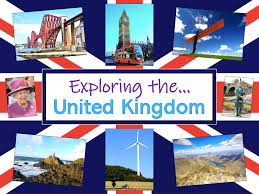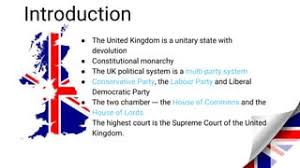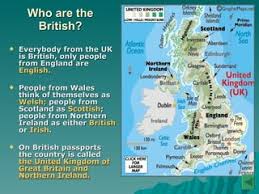SYLLABUS+ FIRST LESSONS (Belaifa Ahmed Islam)
Syllabus - the United Kingdom-
1. The Earliest Settlers of Britain
- Understand the origins of the Iberians, Celts, and Romans.
- Analyze the impact of these early settlers on British culture and society.
2. The Nordic Invasions
- Examine the roles of the Anglo-Saxons and Vikings in shaping British history.
- Evaluate the cultural exchanges and conflicts that occurred during this period.
3. The Norman Conquest
- Discuss the significance of the Norman Conquest in 1066.
- Explore the changes in governance, culture, and society post-conquest.
4. The Middle Ages
- Identify key events and figures in the Middle Ages.
- Understand the evolution of feudalism and its effects on society.
5. The Tudors
- Investigate the major developments during the Tudor period, including the Reformation.
- Assess the influence of Tudor monarchs on modern British history.
6. The Stuarts
- Analyze the political and social changes during the Stuart era.
- Explore the causes and effects of the English Civil War and the establishment of constitutional monarchy.
These objectives aim to provide a comprehensive understanding of the historical context and significant events that shaped the United Kingdom
NOTE:
The first lessons of civilisation first year for group 1 and 2
General description about the United Kingdom:
Overview of the United Kingdom
Geography
The United Kingdom (UK) is an island nation located off the northwestern coast of mainland Europe. It comprises four countries: England, Scotland, Wales, and Northern Ireland. The UK is surrounded by the Atlantic Ocean, the North Sea, the English Channel, and the Irish Sea. Its diverse landscapes include mountains, rolling hills, and coastal regions.
History
The UK has a rich and complex history, marked by significant events such as the Roman invasion, the establishment of the Anglo-Saxon kingdoms, the Norman Conquest in 1066, and the formation of the United Kingdom in 1707. The British Empire, which expanded in the 18th and 19th centuries, was one of the largest empires in history, influencing global trade, culture, and politics.
Politics
The UK is a constitutional monarchy with a parliamentary democracy. The monarch, currently King Charles III, serves as the head of state, while the Prime Minister is the head of government. The UK Parliament, based in Westminster, consists of two houses: the House of Commons and the House of Lords. The political landscape is characterized by major parties such as the Conservative Party, the Labour Party, and the Liberal Democrats.
Economy
The UK has one of the largest economies in the world, with a diverse range of industries including finance, manufacturing, and services. London is a global financial hub, attracting businesses and investors from around the world. The economy has faced challenges, including the impacts of Brexit, which officially occurred in January 2020, leading to changes in trade and immigration policies.
Culture
The UK is known for its rich cultural heritage, including contributions to literature, music, art, and science. It is home to renowned figures such as William Shakespeare, Charles Dickens, The Beatles, and Sir Isaac Newton. The UK celebrates a variety of cultural events and traditions, reflecting its multicultural society.
Conclusion
The United Kingdom plays a significant role on the global stage, with its historical influence, political stability, and cultural contributions shaping not only its own identity but also that of the wider world.


The first inhabitants of what is now the United Kingdom were prehistoric peoples who settled in the region thousands of years ago. Here’s an overview of these early settlers:
Early Inhabitants of the United Kingdom
1. Paleolithic Era (Old Stone Age)
- Time Period: Approximately 800,000 to 10,000 years ago.
- Inhabitants: Early humans, including Homo heidelbergensis and later Homo sapiens.
- Lifestyle: These groups were primarily hunter-gatherers, relying on hunting, fishing, and foraging for food. They lived in temporary shelters and used simple stone tools.
2. Mesolithic Era (Middle Stone Age)
- Time Period: Approximately 10,000 to 5,000 years ago.
- Inhabitants: Small bands of hunter-gatherers continued to inhabit the UK.
- Lifestyle: As the climate warmed, these groups began to establish more permanent settlements, utilizing a wider range of resources, including fish and wild plants.
3. Neolithic Era (New Stone Age)
- Time Period: Approximately 5,000 to 2,500 years ago.
- Inhabitants: The arrival of farming communities marked this period.
- Lifestyle: People began to domesticate animals and cultivate crops, leading to the establishment of permanent settlements. Notable archaeological sites from this era include Stonehenge and Skara Brae.
4. Bronze Age
- Time Period: Approximately 2,500 to 800 BC.
- Inhabitants: The introduction of metalworking brought about significant cultural changes.
- Lifestyle: Societies became more complex, with advancements in agriculture, trade, and social organization. Burial mounds and hill forts from this period reflect emerging social hierarchies.
5. Iron Age
- Time Period: Approximately 800 BC to the Roman invasion (43 AD).
- Inhabitants: Celtic tribes, including the Britons in England and Gaels in Ireland.
- Lifestyle: These tribes developed distinct cultures, languages, and social structures. They built fortified settlements known as hill forts and engaged in trade with continental Europe.
Conclusion
The early inhabitants of the United Kingdom laid the foundations for the diverse cultures and societies that would follow. Their legacy can still be seen in archaeological sites, ancient structures, and the cultural heritage of the British Isles.
